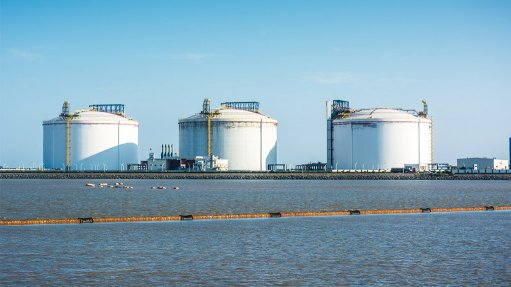Bottled water the most sustainable packaged drink
In light of water week, the South African National Bottled Water Association (Sanbwa) has highlighted that the entire bottled water industry in South Africa uses less water than used to irrigate two golf courses.
The use of water by the total South African bottled water industry equates to 22.7 ℓ a second per year. Just one golf course uses 1 ℓ a second for each hole per year (or 18 ℓ a second for an 18-hole golf course per year).
It takes 16 000 ℓ of water to produce 1 kg of beef, while 1 kg of maize takes 900 ℓ. Further, one cup of coffee requires 140 ℓ, while it only takes 1.8 ℓ of water to produce 1 ℓ of bottled water, equivalent to 1 kg, the organisation notes.
Bottled water is one of the safest, healthiest and most environment-friendly packaged beverages, says Sanbwa; how- ever, it can only be sustainable if all members of society keep in mind their responsibility to recycle and insist that manufacturers use water sources in a responsible manner.
In terms of South African legislation, bottled water is considered water-packaged for human consumption and it is, therefore, classified as a foodstuff. This means it is overseen by the Department of Health.
South Africa’s bottled water legislation defines three classes of water that, if correctly bottled, will be safe, healthy and pleasant tasting for the public.
The first is natural water, which includes mineral and natural spring water, and is sourced from an underground aquifer and bottled at source. Sanbwa highlights that natural water requires no treatment. The second class is water defined by origin, including rain, glaciers, mist, and spring water. The third class is prepared water, including municipal, surface or groundwater that has been purified by treatments that change the chemical composition of the water.
“One of the biggest mistakes is assuming that people drink bottled water in place of tap water, which is not the case. Industry research in the US shows that most people who drink bottled water also drink tap water and choose accessible, calorie-free bottled water as an alternative to a less healthy packaged drink,” says Sanbwa technical director Charlotte Metcalf.
She adds that South Africa’s bottled water standard is amongst the best in the world.
South Africa’s bottled water standard was developed by Sanbwa, which is based on wide review and consultation, and benchmarks favourably against international standards.
“The standard provides exist- ing and new bottlers with a vision for future improvements by putting six main elements under the spotlight – management commitment, quality systems, hazard analysis, critical control point, which is the systematic preventive approach to food and safety, operational controls and environmental stewardship,” says Metcalf.
South African legislation covering the use of groundwater is well developed and directed towards ensuring the sustainability of water resources, rather than depleting them.
The total water consumption by the bottled water industry in 2011 was 0.72-million square metres. This equates to only 0.013% of the country’s total groundwater use. Sanbwa says that to determine the sustainability of South Africa’s groundwater, the groundwater recharge rate must be considered and must not be exceeded.
Sanbwa says current recharge rates, which are calculated as a percentage of rainfall, are 20% or more in the Cape mountain ranges, between 2% and 3% in the Karoo and between 3% and 8% in Gauteng. This means there are at least 12 700-million square metres of groundwater available for use each year.
Polyethylene terephthalate (PET) is used for the packaging of numerous types of foods, including everything from peanut butter and soft drinks to juices, beer, wine and spirits.
PET has been approved for over 30 years as safe for food and beverage contact by the Food and Drug Administration, as well as similar regulatory agencies throughout the world.
“The idea that PET leaches carciogenic substances into these food products, as well as bottled water, is incorrect,” says Metcalf. She adds that it is also safe to freeze PET bottles or drink from them if they have been left in a heated car. “The claim that it isn’t is unsubstantiated by any credible evidence.”
PET bottles are 100% recyclable, and recycling the PET bottle reduces its carbon footprint by around 25%. Industry body for PET recycling Petco increased its post-consumer plastic beverage bottle recycling rate from 42% in 2011 to 45% in 2012. In the last eight years, the number of postconsumer PET bottles recycled has grown from 328-million to 1.9-billion PET bottles in 2012, or 5.3-million bottles a day.
Comments
Press Office
Announcements
What's On
Subscribe to improve your user experience...
Option 1 (equivalent of R125 a month):
Receive a weekly copy of Creamer Media's Engineering News & Mining Weekly magazine
(print copy for those in South Africa and e-magazine for those outside of South Africa)
Receive daily email newsletters
Access to full search results
Access archive of magazine back copies
Access to Projects in Progress
Access to ONE Research Report of your choice in PDF format
Option 2 (equivalent of R375 a month):
All benefits from Option 1
PLUS
Access to Creamer Media's Research Channel Africa for ALL Research Reports, in PDF format, on various industrial and mining sectors
including Electricity; Water; Energy Transition; Hydrogen; Roads, Rail and Ports; Coal; Gold; Platinum; Battery Metals; etc.
Already a subscriber?
Forgotten your password?
Receive weekly copy of Creamer Media's Engineering News & Mining Weekly magazine (print copy for those in South Africa and e-magazine for those outside of South Africa)
➕
Recieve daily email newsletters
➕
Access to full search results
➕
Access archive of magazine back copies
➕
Access to Projects in Progress
➕
Access to ONE Research Report of your choice in PDF format
RESEARCH CHANNEL AFRICA
R4500 (equivalent of R375 a month)
SUBSCRIBEAll benefits from Option 1
➕
Access to Creamer Media's Research Channel Africa for ALL Research Reports on various industrial and mining sectors, in PDF format, including on:
Electricity
➕
Water
➕
Energy Transition
➕
Hydrogen
➕
Roads, Rail and Ports
➕
Coal
➕
Gold
➕
Platinum
➕
Battery Metals
➕
etc.
Receive all benefits from Option 1 or Option 2 delivered to numerous people at your company
➕
Multiple User names and Passwords for simultaneous log-ins
➕
Intranet integration access to all in your organisation


















